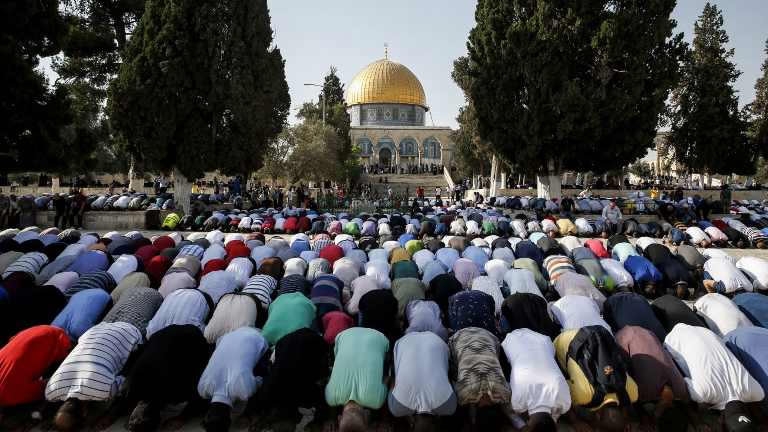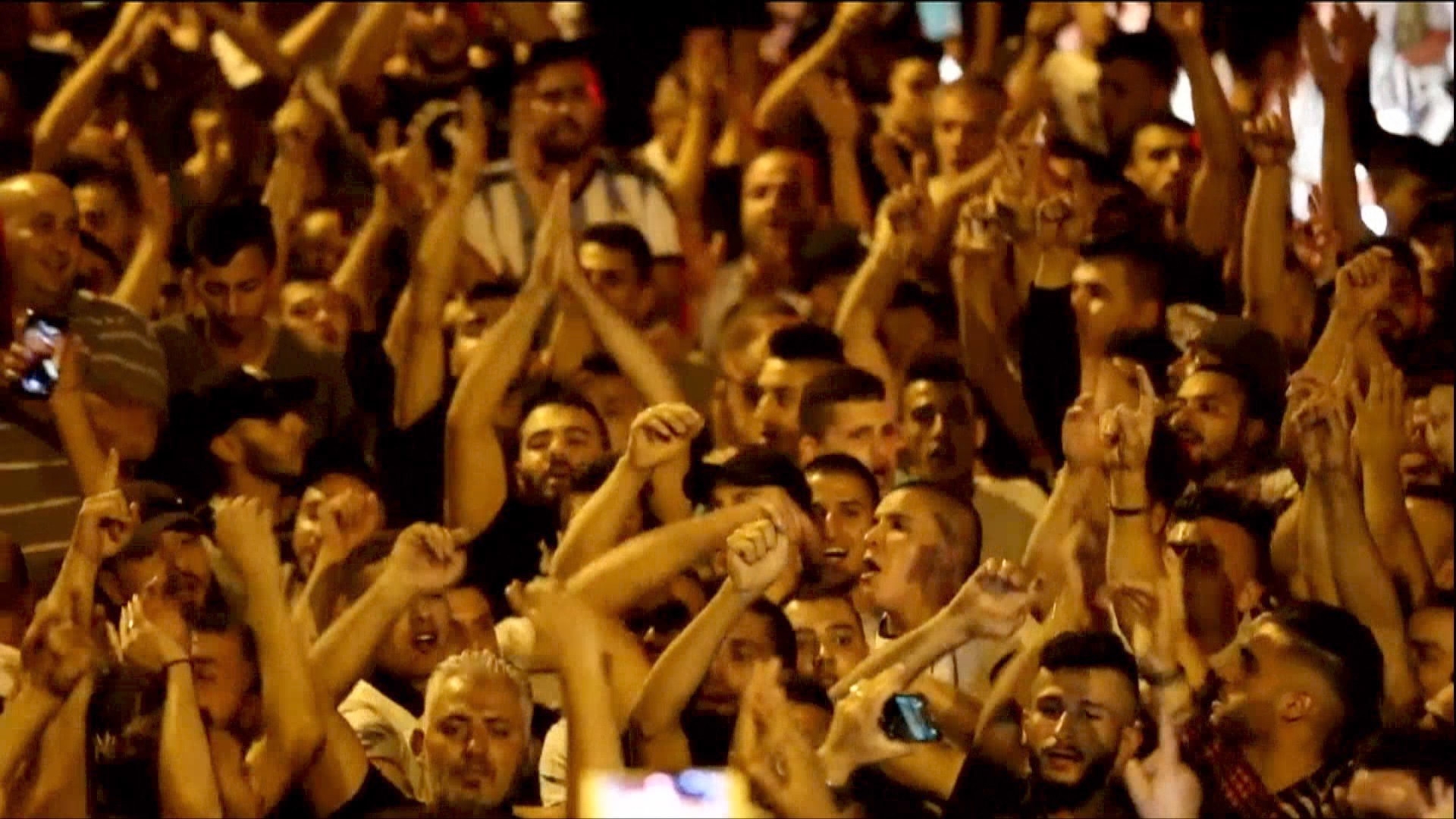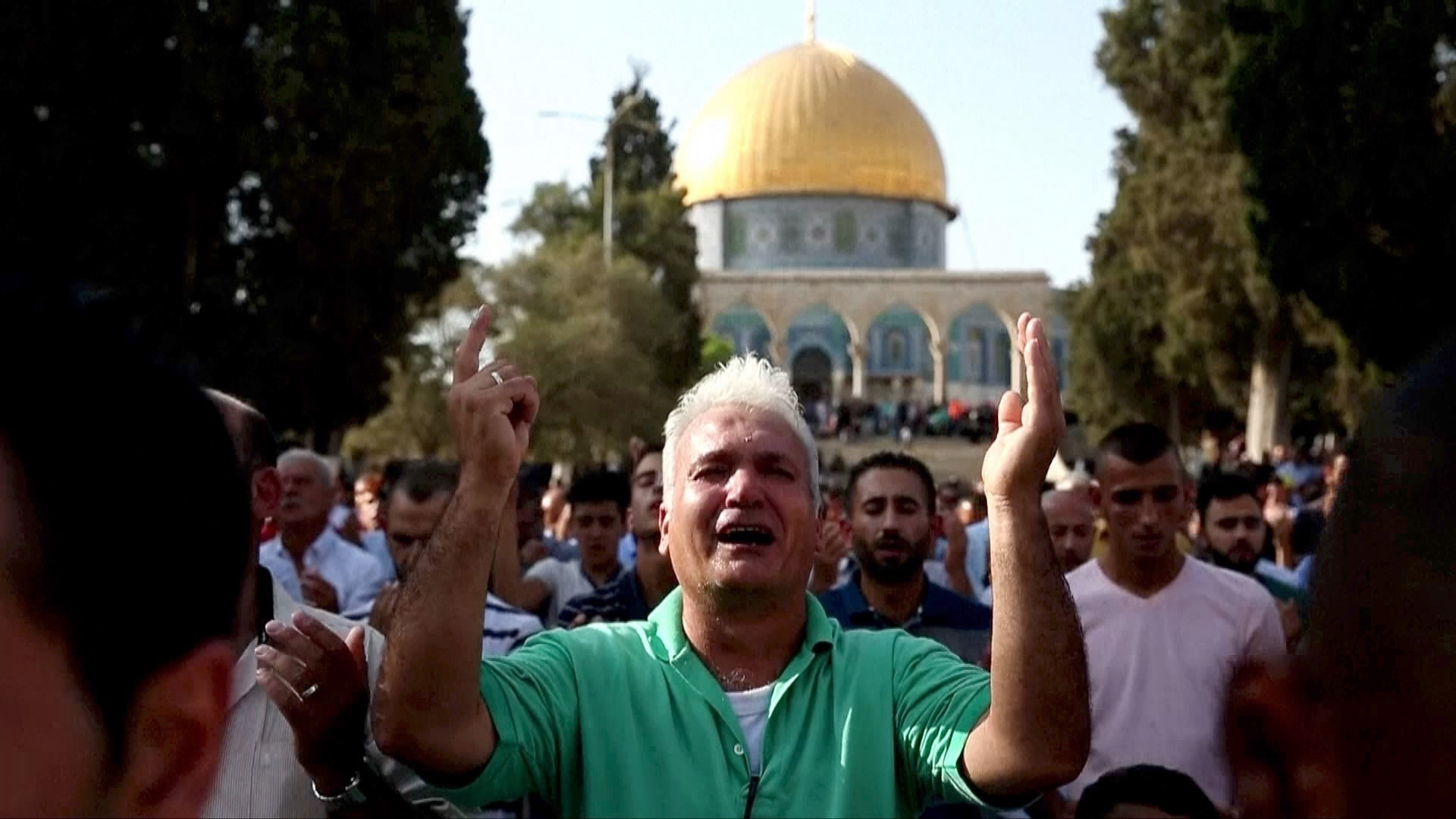
Politics
13:25, 28-Jul-2017
Muslims return to al-Aqsa amid Saudi claims of easing tensions

Muslims returned to al-Aqsa mosque on Thursday after Israel removed controversial new security measures.
Israeli media saw this as a quick victory for the protesters as Saudi Arabia claimed it helped in ending Israeli restrictions on the Jerusalem shrine.
Thousands of Muslims entered the sacred holy site, ending a boycott of the compound over new Israeli security measures.
The protesters got everything they asked for, in less time than they expected, according to an analysis in a Haaretz newspaper report.
‘Peacemaker’
Saudi Arabia claimed King Salman contacted US President Donald Trump and other world powers to help ease the tensions.
"The Custodian of the Two Holy Mosques, King Salman bin Abdulaziz al-Saud, has held contacts with many world leaders over the past few days," state news agency SPA quoted an announcement from the Saudi royal court.
King Salman called for stability and calm at the holy site.
Saudi government emphasized the importance of achieving a just and comprehensive peace for the Palestinian cause, under the Arab peace initiative and the vision of a two-state solution, Saudi Gazette reported.
Clashes continued
After Muslim’s returned to al-Aqsa, the atmosphere was initially celebratory, but clashes erupted later between Israeli police and Palestinians.

Around 100 people were wounded inside Haram al-Sharif compound, known to Jews as the Temple Mount, according to the Palestinian Red Crescent.
"Upon the entry of worshippers into the Temple Mount compound, some began throwing stones at officers, during which some stones fell into the Western Wall plaza," Israeli police said in a statement, referring to the Jewish holy site below the compound.
The US, however, has welcomed "the efforts undertaken to de-escalate tensions in Jerusalem today."
"Calm and security will create the best opportunity to return to dialogue and the pursuit of peace," read a statement by Jason Greenblatt, US President Donald Trump's special representative for international negotiations.
How did it begin?
The controversial site includes the Dome of the Rock and Al-Aqsa mosque where Israel introduced security measures including putting up metal detectors and installing security cameras after two police officers were killed in a July 14 attack at one of the entrances to the Mount.

It angered Palestinians who staged demonstrations at all the entrances, refusing to enter the compound and prayed in the streets outside.
They viewed the move as Israel asserting further control over the mosque.
Over the past week, hundreds of protesters gathered at the Mount every day. According to Israeli media, they organized stocks of food and water and their message was, “We aren’t going anywhere.”
Five Palestinians were killed as the impasse led to deadly unrest, with clashes breaking out around the mosque and in the occupied West Bank.
A sixth Palestinian died on Thursday. The Palestinian health ministry said Mohammed Kanaan, 26, was wounded three days earlier in clashes with Israeli forces in the West Bank.
Israeli authorities had said the measures were needed because the July 14 attackers smuggled guns into the compound and emerged from it to attack the police.
(With inputs from AFP)

SITEMAP
Copyright © 2018 CGTN. Beijing ICP prepared NO.16065310-3
Copyright © 2018 CGTN. Beijing ICP prepared NO.16065310-3